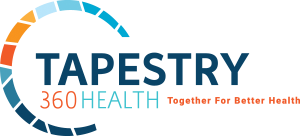Sexual Health Testing
We provide confidential and safe care, including tests for STD’s or STI’s

The difference between STD’s and STI’s
STD stands for sexually transmitted disease, whereas STI means sexually transmitted infection. Not all diseases begin with infections, but many do. Sexually transmitted disease first begin as sexually transmitted infections
If a sexually transmitted bacteria or virus has entered the body, the infection may progress into a disease. Disease occurs when this foreign presence officially disrupts the body’s normal functions and processes.
Types of STIs and STDs
According to the CDC, 8 of the most common sexually transmitted diseases are:
- Chlamydia
- Gonorrhea
- Hepatitis B Virus (HBV)
- Herpes Simplex Virus Type 1 & 2 (HSV-1, HSV-2)
- Human Immunodeficiency Virus (HIV)
- Human Papillomavirus (HPV)
- Syphilis
- Trichomoniasis
STIs are fairly common – 1 in 5 Americans has one, according to the CDC.
How To Prevent STI’s and STD’s?
The best way to prevent HIV and other STD/STIs from spreading is to test regularly. Some symptoms may go undetected, leaving you and those you encounter at risk. If you’re worried that you may have HIV or an STD/STI, your first step is to get tested!
What Does Testing Involve?
Based on your reproductive organs, STI and STD testing varies. The universal way of testing involves a urine sample and genital examination. For patients that have a vagina, a pelvic exam is required to identify any abnormalities within the vagina, vulva, cervix or uterus. Patients with a penis may require a swab test inside of the urethra. In rare occasions, a blood test may be needed to further investigate.
How Often Should You Get Tested?
As long as you’re sexually active, you should test for STDs at least once a year. If you have more than one partner, share intravenous (IV) needles, or don’t always practice safer sex by using a condom each time you have intercourse, you should test every three to six months.
















































